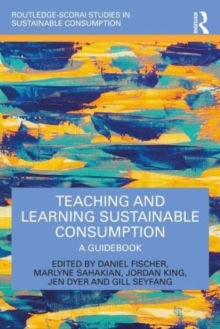
Social Change and the Coming of Post-consumer Society : Theoretical Advances and Policy Implications PDF
Edited by Maurie Cohen, Halina Szejnwald Brown, Philip Vergragt
Part of the Routledge-SCORAI Studies in Sustainable Consumption series
Description
Consumer society is an unquestionably complex social construct. However, after decades of unremitting dominance there are signs emerging that it is starting to falter, both as a coherent and durable system of social organization and as a strategy for societal advancement. Debates concerning how we can transition beyond present energy- and materials-intensive consumer society are beginning to gain greater salience.
Social Change and the Coming of Post-Consumer Societyaims to develop more complete appreciation of the relevant processes of social change and to identify effective interventions that could enable a transition to supersede consumer society. Bringing together leading interdisciplinary experts on social change, the book identifies and analyzes several ongoing small- and modest-scale social experiments. Possibilities for macro-scale change from the interlinked perspectives of culture, economics, finance, and governance are then explored. These contributions expose the systemic problems that are emblematic of the current condition of consumer society, specifically the unsustainability of prevailing consumption practices and lifestyles and the persistence of inequalities. These observations are summarized and extended in the final chapter of the book.
This volume will be of great interest to students and scholars of sustainable consumption, sustainability transitions, environmental sociology, and sustainable development.
Information
-
Download - Immediately Available
- Format:PDF
- Pages:246 pages
- Publisher:Taylor & Francis
- Publication Date:31/03/2017
- Category:
- ISBN:9781317246213
Information
-
Download - Immediately Available
- Format:PDF
- Pages:246 pages
- Publisher:Taylor & Francis
- Publication Date:31/03/2017
- Category:
- ISBN:9781317246213










